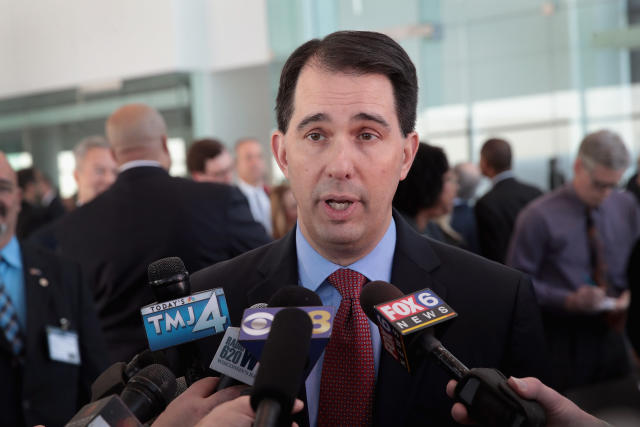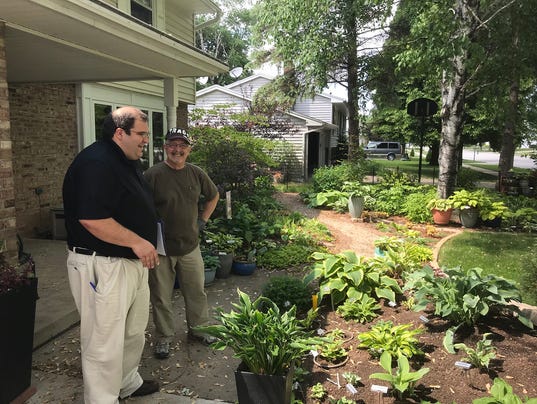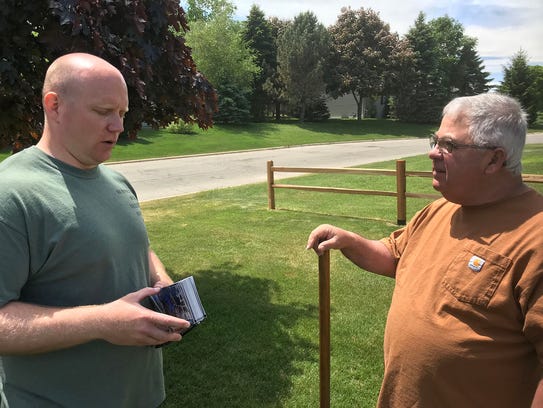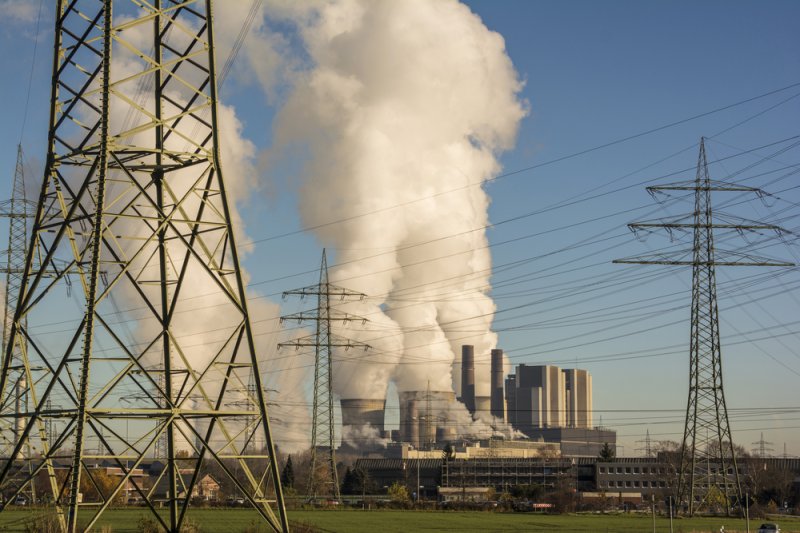Resilience
Building a world of resilient communities
Is the Trans Mountain Pipeline (and Other Fossil Fuel Investments) a Future Stranded Asset?
By Martin Bush. Orig. pub in DeSmog Blog June 11, 2018
Reposted with permission from ClimateZone.org.
 The Dakota Access pipeline being installed between farms, as seen from 50th Avenue in New Salem, North Dakota. Credit: Tony Webster, CC By SA 2.0
The Dakota Access pipeline being installed between farms, as seen from 50th Avenue in New Salem, North Dakota. Credit: Tony Webster, CC By SA 2.0
Several major economies, including the U.S. and Canada, rely heavily on fossil fuel production and exports. But the surging market penetration of renewable energy technologies, energy efficiency improvements, and climate emission policies are certain to substantially reduce the global demand for fossil fuels.
In a seminal paper published a week ago in Nature Climate Change, researchers present the results of sophisticated multi-dimensional modeling of the macro-economic impacts of future technology transformations and climate change policy, as the demand for fossil fuels declines and the price of oil falls.
This is a peer-reviewed paper that was scrutinized by other experts for almost a year before it was accepted for publication. Its warnings should be taken seriously.
Irrespective of whether or not new climate policies are adopted, global demand growth for fossil fuels is already slowing due to the accelerating transition to a low carbon global economy. Given the pace of low-carbon technology market penetration, fossil fuel assets are likely to become stranded due to advances in renewable energy deployment, improvements in energy efficiency, and the electrification of the transportation sector.
There can be no doubt that a global energy transition is fully underway. Last year was another record-breaking year for renewable energy — characterized by the largest ever increase in renewable power capacity, falling costs, increased investment, and advances in enabling technologies.
Solar photovoltaic capacity installations were off the chart — nearly double those of wind power (in second place) — and adding more net capacity than coal, natural gas, and nuclear power combined. Check out the numbers.
The Paris Agreement aims to limit the increase in global average temperatures to below 2°C. Attaining this objective absolutely requires that a fraction of existing reserves of fossil fuels remain in the ground, and that a part of present production capacity remains unused — effectively becoming stranded assets.
Since investors had assumed that these reserves will be commercialized, the stocks of listed fossil fuel companies may soon be judged to be over-valued. This situation gives rise to the possibility of a “carbon bubble” — which may eventually burst with global economic consequences.
The modeling results show that the lower demand for fossil fuels leads to substantial stranded fossil fuel assets if climate change policies are not adopted. For individual countries, the effects vary depending on their marginal costs of production, with oil production becoming concentrated in OPEC member countries–where costs are lower. Regions with higher marginal costs experience a steep decline in production (for instance Russia), or risk losing a substantial part of their oil and gas industries — like Canada and the U.S.
The Sell-out
The magnitude of the economic impact depends on a variety of factors. The analysis suggests that the behavior of low-cost producers and/or the adoption of 2°C policies can lead to an amplification of the losses. If low-cost producers decide to increase their ratio of production relative to reserves to outplay other asset owners and minimize their losses by selling out early–in effect a “sell-out” — this strategy has a major and very negative impact on higher cost producers.
The low carbon transition generates a modest GDP and employment increase in regions with limited exposure to fossil fuel production (for example, most of the EU and Japan). This is due to a reduction of the trade imbalance arising from fossil fuel imports, and higher employment arising from new investment in low carbon technologies. The improvement occurs despite the general increase in energy prices and hence costs for energy intensive industries.
However, fossil fuel exporters experience a steep decline in their output and employment due to the near shutdown of their fossil fuel industry. These patterns emerge even though there is only a modest overall impact on global GDP — indicating the impacts are primarily distributional with clear winners — the EU and China, and clear losers — the U.S. and Canada.
Gains and Losses
The figure below shows the gains and losses for major economies including the U.S. and Canada through to 2035. The units are in trillions of U.S. dollars. The principal winners are the EU, China and India. The main losers are the U.S. and Canada.

Cumulative GDP gains and losses by country/region. Credit: Mercure et al., Nature Climate Change 2018.
Although the U.S. losses are larger in absolute terms, the percentage loss of GDP for Canada is much larger — increasing to over 20 percent within the next ten years. Unemployment increases to around 8 percent over the same time frame. These projections are shown in the graphs below.
 Percentage change in GDP. Credit: Mercure et al., Nature Climate Change 2018.
Percentage change in GDP. Credit: Mercure et al., Nature Climate Change 2018.
For Canada, the higher marginal costs of oil sands production (including transport to tidewater via pipelines or oil trains) doom the industry to a future of increasingly curtailed production and stranded assets.
It’s in the context of these long term macroeconomic projections that the proposed Trans Mountain Expansion pipeline should be viewed. Within a decade there will be no market for the oil sands production of heavy oil and bitumen. Low-cost producers, sensing the end of an era, will start to sell off their assets. Oil prices will tumble.
It makes no sense to build a pipeline intended to increase production from the oil sands when even maintaining the existing level of production is seriously in doubt.
Justin Trudeau, now the proud owner of an obsolete and very expensive pipeline, should check the fine print.
Maybe he’s still got a few days where he can change his mind.


 The Dakota Access pipeline being installed between farms, as seen from 50th Avenue in New Salem, North Dakota. Credit: Tony Webster, CC By SA 2.0
The Dakota Access pipeline being installed between farms, as seen from 50th Avenue in New Salem, North Dakota. Credit: Tony Webster, CC By SA 2.0
 Percentage change in GDP. Credit: Mercure et al., Nature Climate Change 2018.
Percentage change in GDP. Credit: Mercure et al., Nature Climate Change 2018.  Getty Images
Getty Images Getty Images
Getty Images © Getty
© Getty
 (Photo: Craig Gilbert / Milwaukee Journal Sentinel)
(Photo: Craig Gilbert / Milwaukee Journal Sentinel) Caleb Frostman (left), the Democratic candidate in Tuesday’s special election for state Senate, talks to Sturgeon Bay voter Tom Fernandez. (Photo: Craig Gilbert / Milwaukee Journal Sentinel)
Caleb Frostman (left), the Democratic candidate in Tuesday’s special election for state Senate, talks to Sturgeon Bay voter Tom Fernandez. (Photo: Craig Gilbert / Milwaukee Journal Sentinel) New research suggests CO2 concentrations are a better predictor of the extreme weather events associated with global warming. Photo by Reinhard Tiburzy/Shutterstock
New research suggests CO2 concentrations are a better predictor of the extreme weather events associated with global warming. Photo by Reinhard Tiburzy/Shutterstock